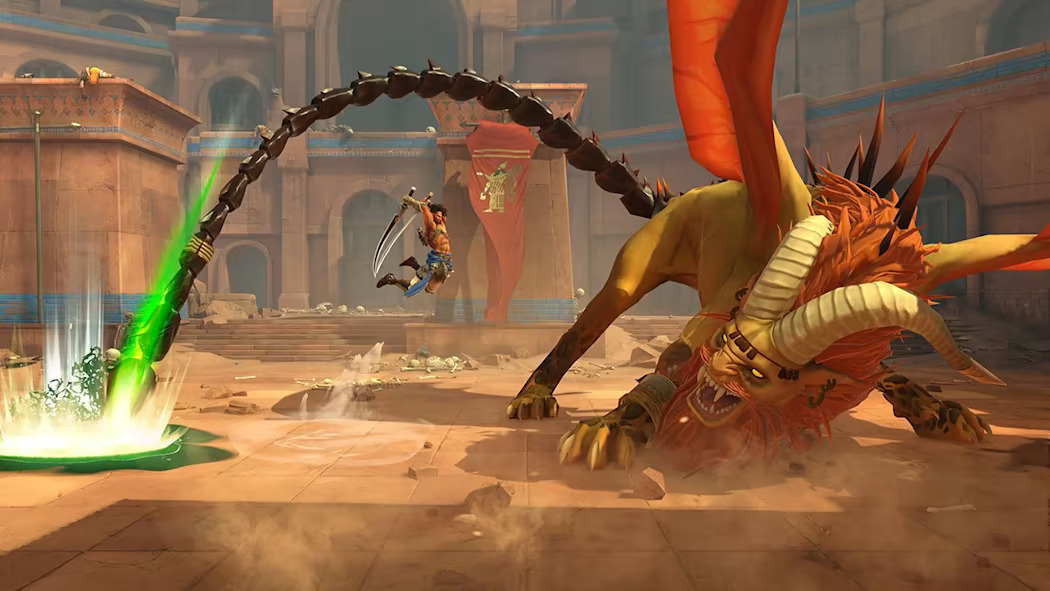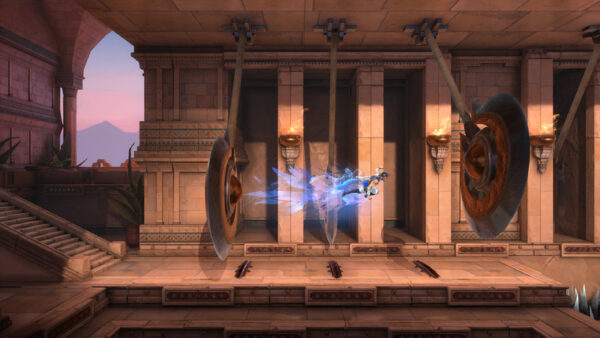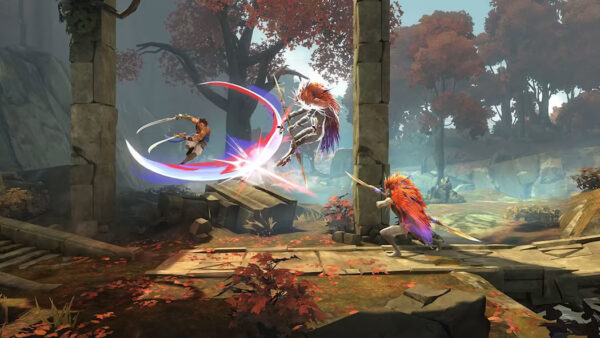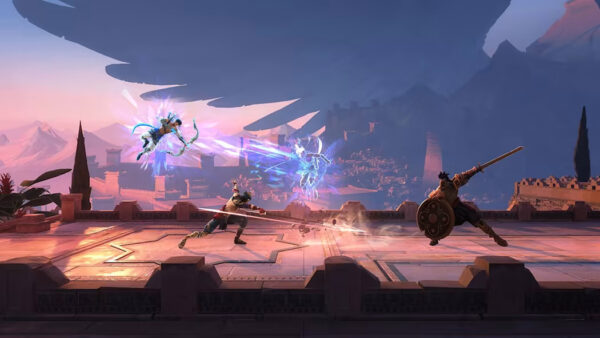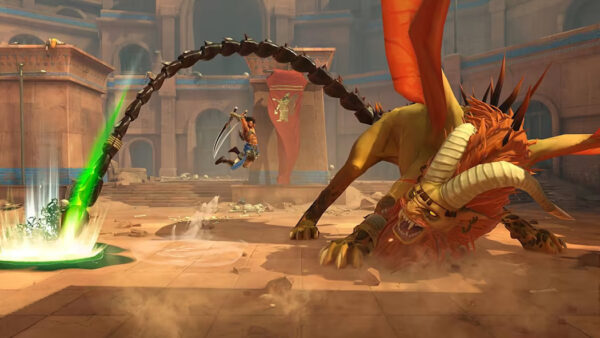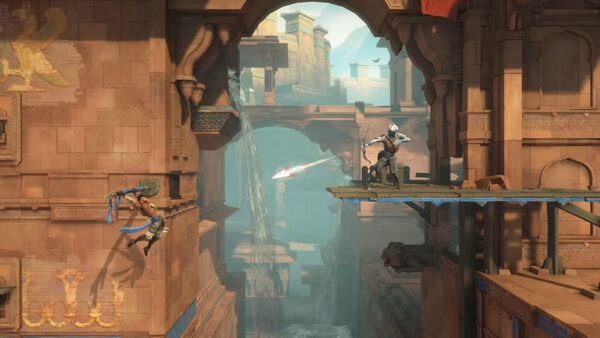Also on: PC, Nintendo Switch, Xbox Series X, Xbox One, PS4
Publisher: Ubisoft
Developer: Ubisoft Montpelier
Medium: Digital/Disc/Cartridge
Players: 1
Online: No
ESRB: T
It’s been more than a decade since we last had a Prince of Persia game.
Your reaction to that information will say a lot about your age. If that fact elicits some level of surprise, then you’re probably old enough to remember that the series was once big enough that it even got a movie adaptation starring Jake Gyllenhaal. Alternatively, if that phrase means nothing to you, then it probably means you got into gaming at any point from late-era PS3 onwards – and while that may seem like a blink of an eye to people from the former group, the reality is we’ve gone almost two generations without Prince of Persia, so indifference is kind of understandable. (And as someone from that first group who even has vague memories of Prince of Persia from the ‘90s, writing out this paragraph makes me feel ridiculously old.)
The big question for Prince of Persia: The Lost Crown, then, is this: can it bring back all those people who grew up on the series from a few decades ago, or can it appeal to those generations of gamers who grew up probably unaware of the series’ existence? And honestly, I’m not sure the answer to either one of those questions is “yes.”
Mind you, that’s not necessarily a reflection on the quality of The Lost Crown, but more a statement about what kind of game it is. It’s a Metroidvania-style platformer, which means it basically harkens back to the series’ roots, ignoring pretty much its whole foray into the world of 3D gaming – so if you want a big, flashy adventure that typified the series in the mid-’00s, you’re not really going to find that here.
Of course, if you like 2D Metroidvania platformers, then you’ll probably find a lot here to love. The Lost Crown was made by the same team that made Rayman Origins and Rayman Legends (speaking of games from long ago), and while it’s definitely not a 1:1 comparison, it’s no surprise that a studio that could create two outstanding Metroidvanias a decade ago like that could repeat the feat today.
The difference, of course, is the focus. The Lost Crown may require you to spend lots of time exploring a giant, branching map, what it really wants you to do is fight everything that crosses your path. To this end, even on the easiest difficulty settings, it expects you to learn how to dodge and parry and thrust from every angle. You’ll face enemies of all shapes and speeds and sizes – some of them much bigger and faster than you – so the game demands that you figure out when to go on the attack with your sword and bow and arrow, when to dive out of the way of an unblockable attack, and when you need to unleash one of your overpowered attacks. While I wouldn’t say it’s a sharp learning curve, it’s enough that the game is no walk in the park.
But that’s not to say that there’s not some decent exploration to be done here. The Lost Crown’s map is pretty large, and even if you turn on the waypoints to help guide you, you’ll still be spending a lot of time backtracking and searching through branching paths here and there. Of course, the end result of most exploration is finding more enemies to fight, so it really all goes back to what I wrote in the previous paragraph about combat being a big focus here.
Having said all that, the big drawback to The Lost Crown is that if you’re not already a fan of Metroidvanias, it’s hard to imagine anything here will suddenly make you a believer in the genre. It’s a well-made Metroidvania, to be sure, but there’s nothing here that breaks new ground.
But if you grew up with Prince of Persia, that’s kind of beside the point. The Lost Crown shows that there’s still life in the franchise. Now, hopefully, we don’t have to go another thirteen years until the next entry.
Ubisoft provided us with a Prince of Persia: The Lost Crown PS5 code for review purposes.

